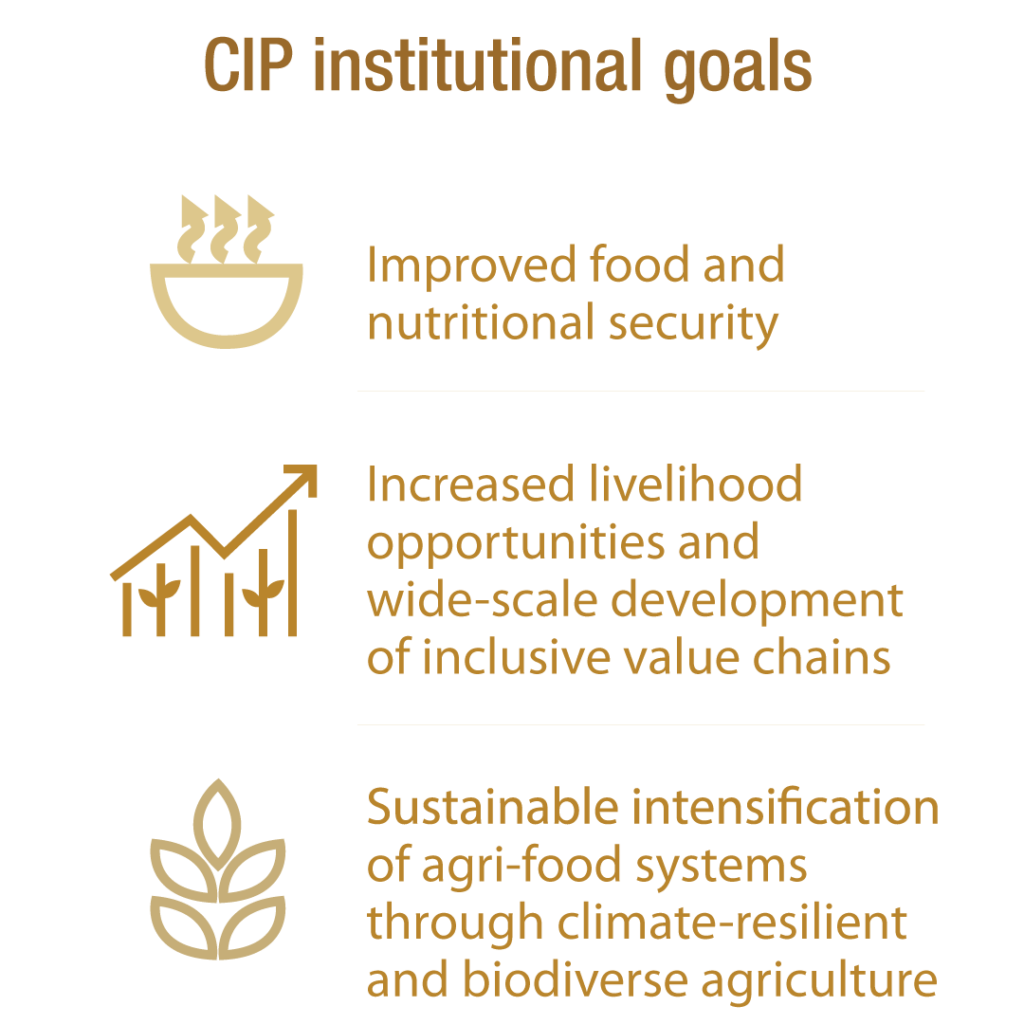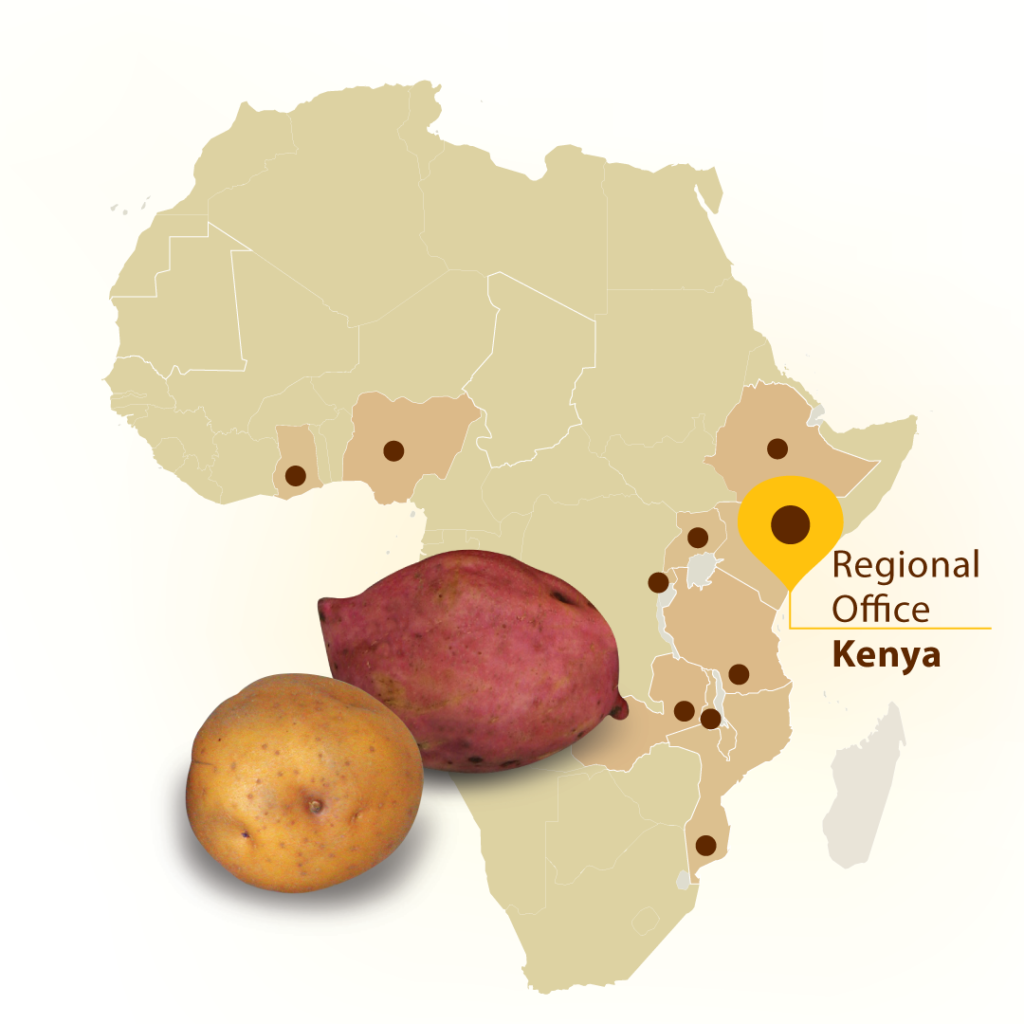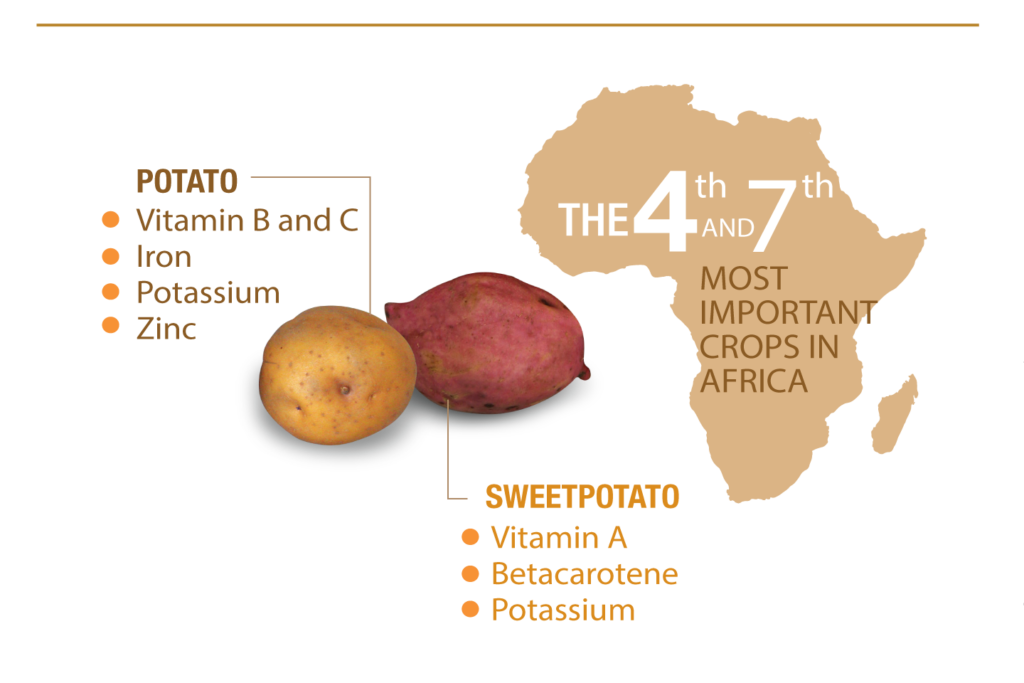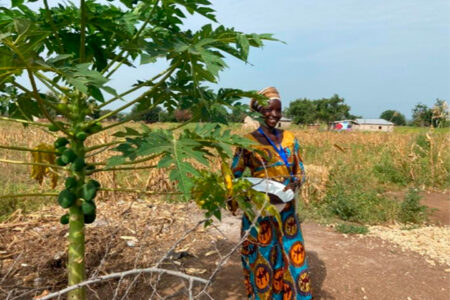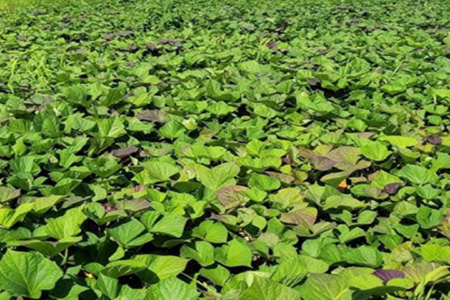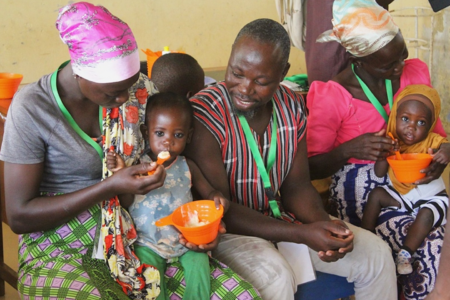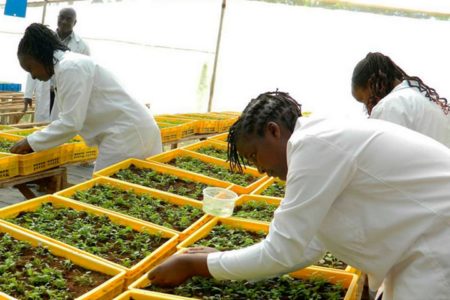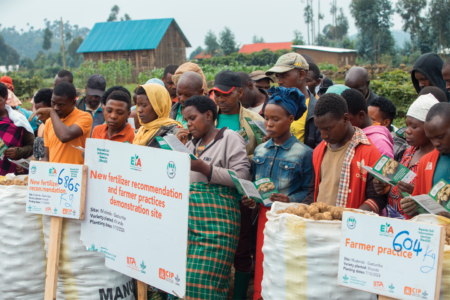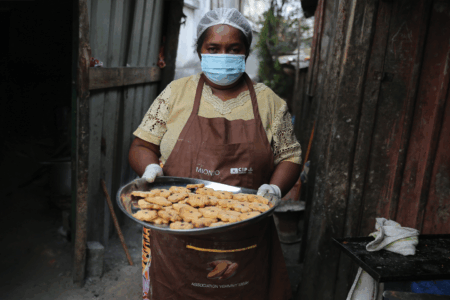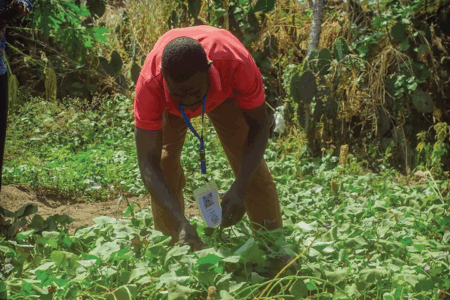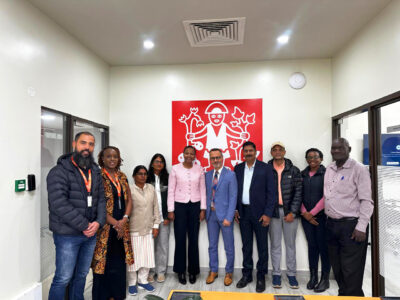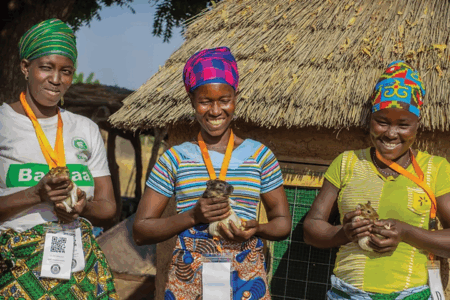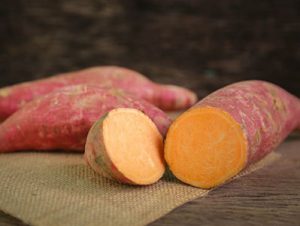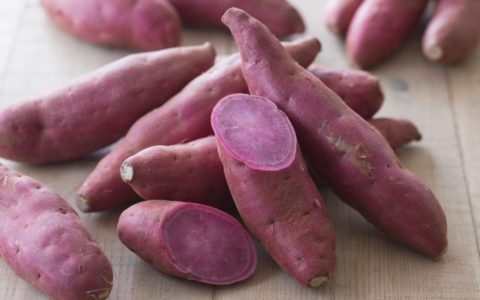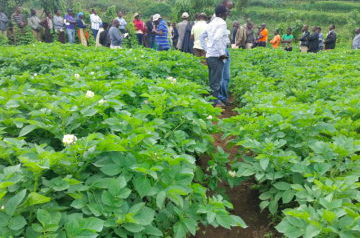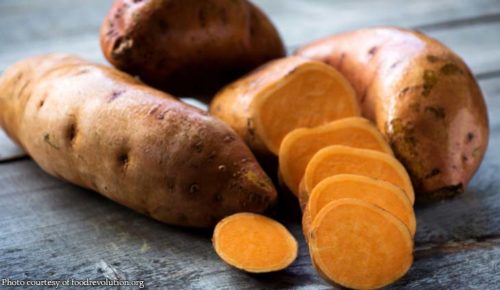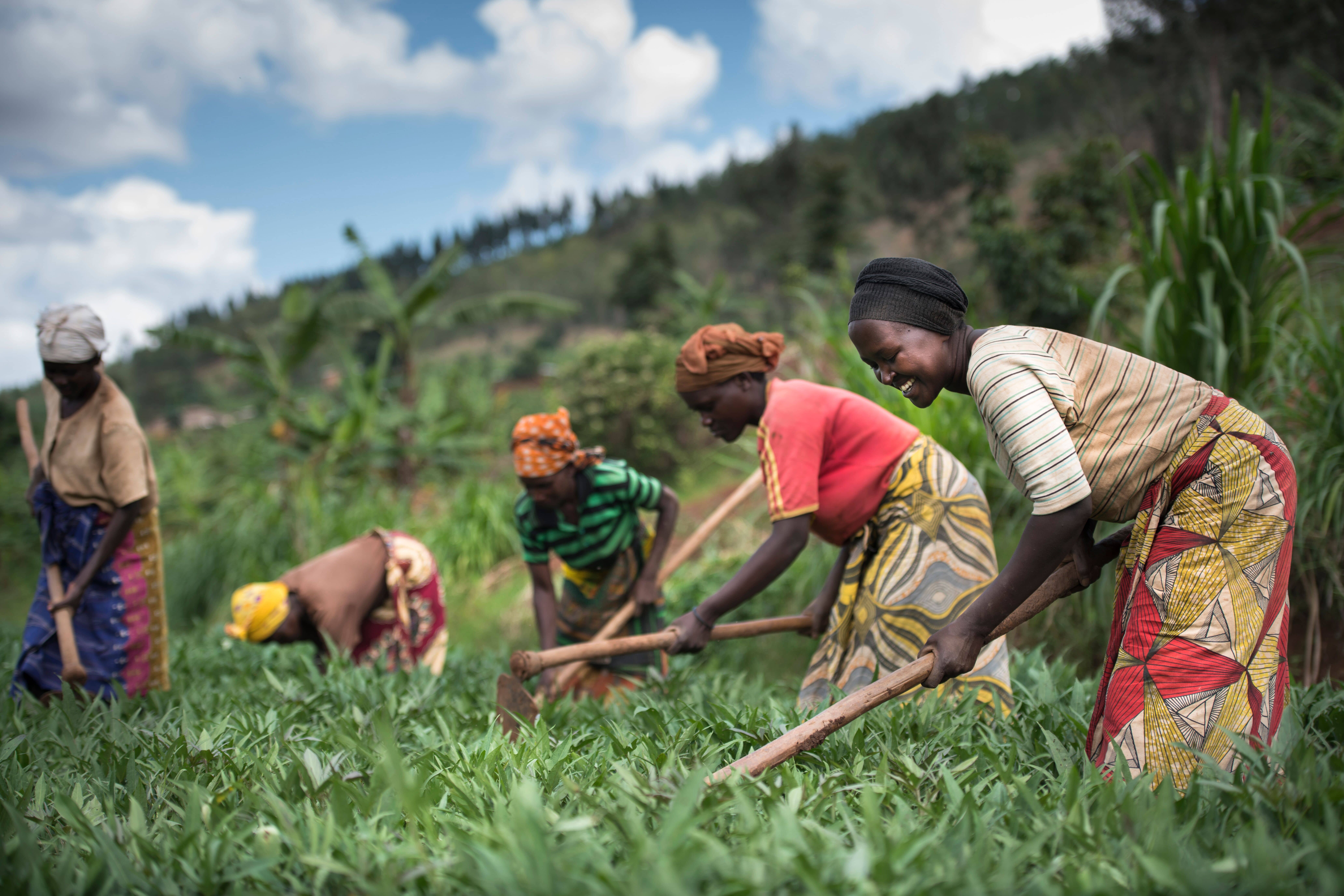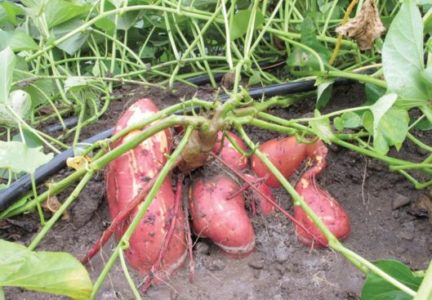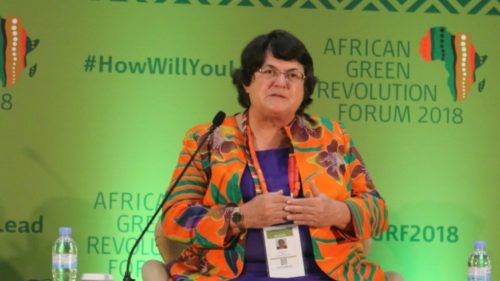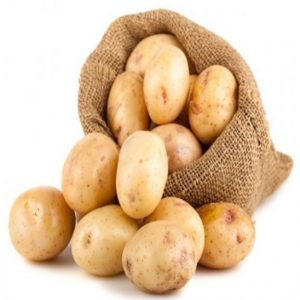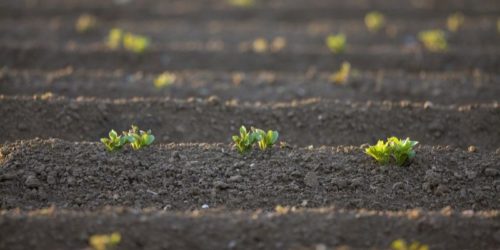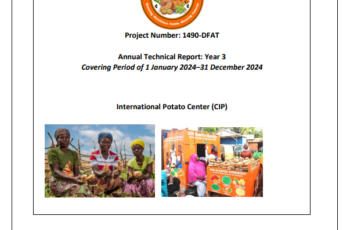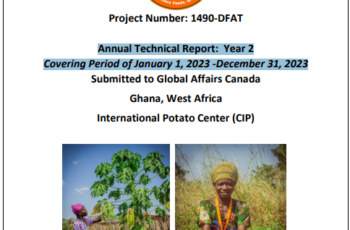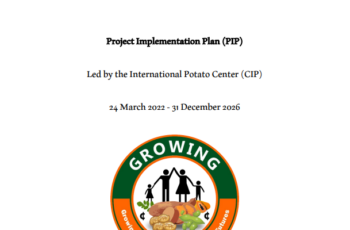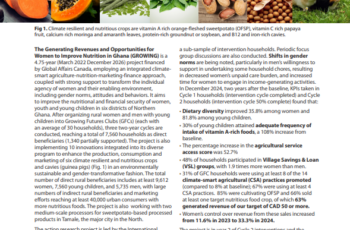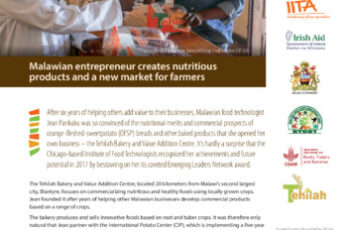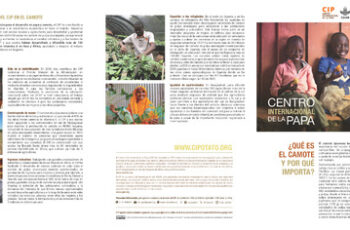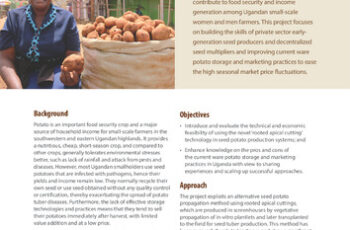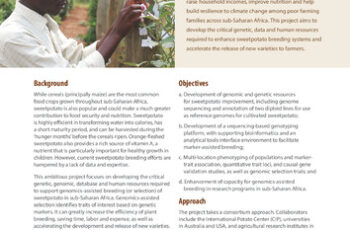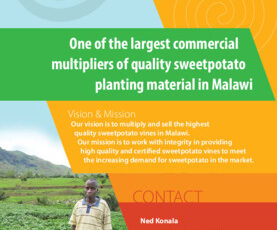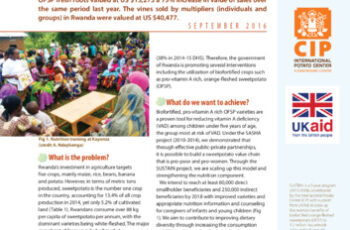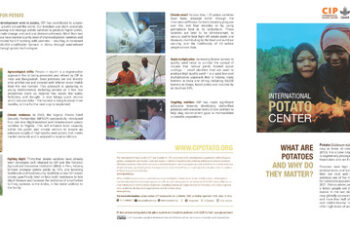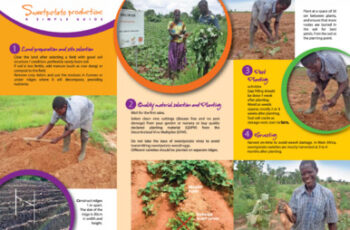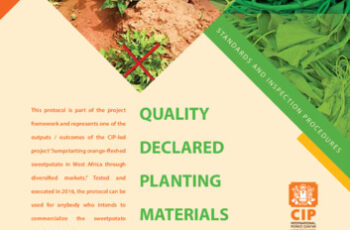Nutritional security livelihoods and climate resilience in Africa
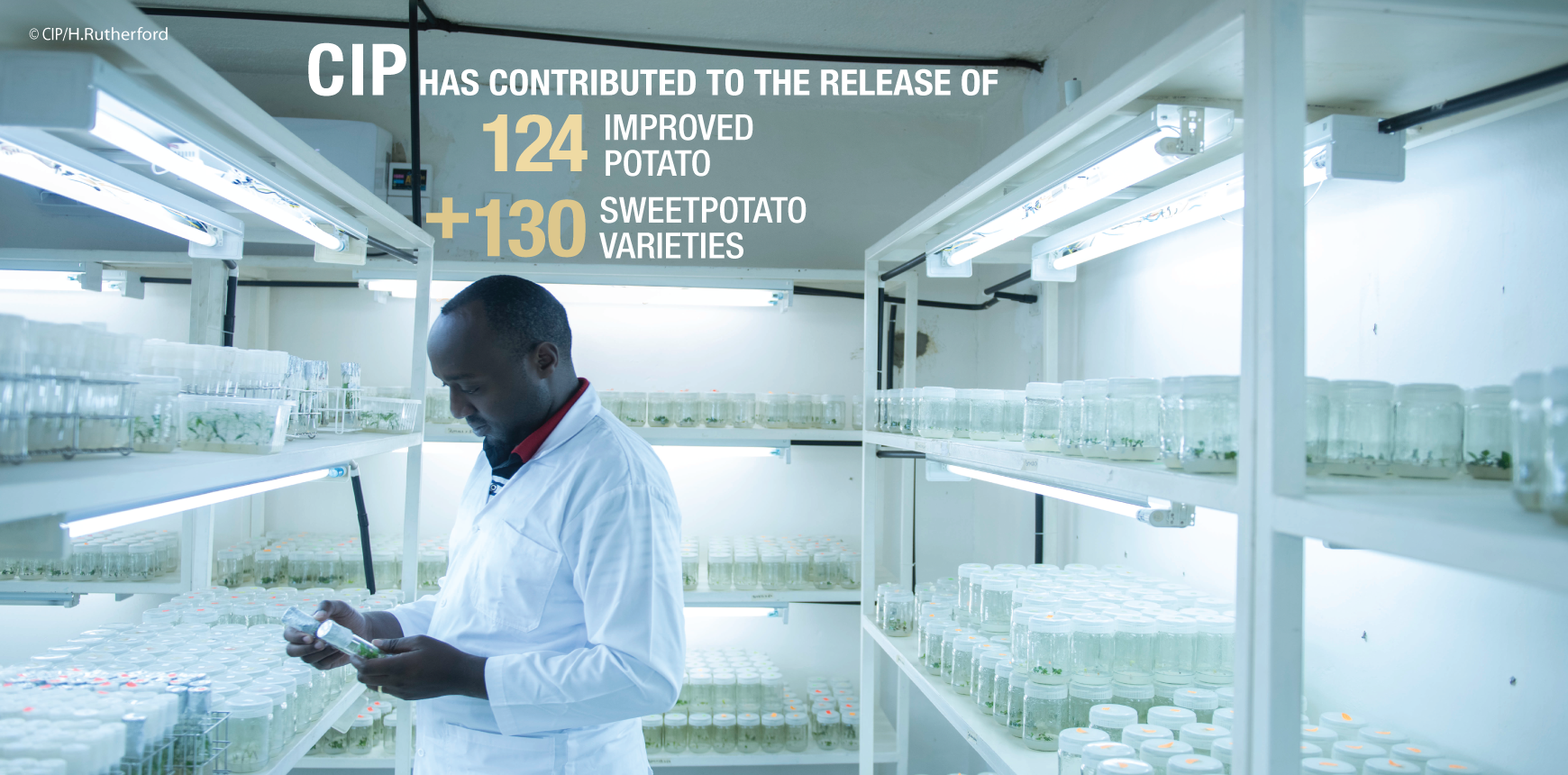
Substantial economic growth over swathes of Africa in recent years has helped significantly reduce poverty, malnutrition, and food and nutritional insecurity. The fourth and seventh most important crops on the continent, potato and sweetpotato are suitable for challenging circumstances, contributing to the nutrition and incomes of millions of African families. Both crops are highly efficient in transforming water into calories and have short maturity periods. Orange-fleshed sweetpotato (OFSP) provides a rich source of vitamin A—commonly deficient among children and women of reproductive age—and potato contains significant amounts of vitamin B and C, iron, potassium and zinc. With rising demand, there is huge potential for closing crop yield gaps, sustainably intensifying production systems and strengthening value chains in Africa.
MAJOR PROJECTS
Investor: Bill & Melinda Gates Foundation (BMGF) (2014-19)
In its second phase, SASHA has helped national research programs accelerate the development and dissemination of 46 resilient sweetpotato varieties—37 of them vitamin-A-rich, orange-fleshed varieties—while promoting the crop to farmers and consumers. Genetic gains (increased yields) that took breeders 36 years, can now be achieved in 5 years using improved conventional breeding, and average productivity rates have risen from 10.9 to 18.5 tons/ha under rainfed conditions. Efforts have expanded farmer access to quality planting material, improved farming practices, and created demand through the development of sweetpotato products, vastly expanding its production and consumption in Uganda, Kenya, Ethiopia, Tanzania, Mozambique and Ghana.
Investor: UK Department for International Development (DFID) (2019–22)
Phase I of the project enabled the scaling of biofortified orange-fleshed sweetpotato (OFSP) varieties to a targeted 2.3 million farming households with children under five in Kenya, Malawi, Mozambique, Rwanda and Bangladesh, provided nutritional education to 2 million caregivers and facilitated the establishment of sweetpotato businesses and products with annual sales of an estimated USD 890,000. Phase II seeks to scale up the benefits of biofortified sweetpotato more widely and target vulnerable communities more explicitly — building links with large-scale commercial and humanitarian initiatives.
Investor: United States Agency for International Development (USAID) (2015–18)
By 2018, phase I of the Feed the Future Accelerated Value Chain Development project had enabled the creation of sustainable and productive value chains that enhanced incomes and nutritional outcomes in Kenya. Potato value chain work reached some 46,000 households with productivity-enhancing technologies and support for farmer-marketing institutions; sweetpotato interventions benefitted nearly 70,000 households with children under five with improved OFSP varieties and nutrition education. Phase II expands the work to two neighboring counties, supporting institutional potato sector development planning and improved nutrition outreach, and bringing productivity-enhancing technologies to a further 20,000 smallholder households.
Investor: African Development Bank (2018–21)
TAAT aims to build a highly diversified sweetpotato sector that delivers nutritious food to rural and urban populations and provides business opportunities for young people and women. It leverages CIP’s work in 12 African countries to increase OFSP production, improve incomes, generate employment from the sale of fresh OFSP roots and processed products, and expand the use of sweetpotato-foliage-based silage by small- to medium-scale livestock and dairy farmers.
Ethiopia
Investor: Irish Aid (2013-19)
This project began with the distribution of quality planting material for nutritious sweetpotato varieties and agronomic and nutrition training to nearly 20,000 rural households with young children and women of reproductive age in the Southern Nations, Nationalities and Peoples’ (SNNP) and Tigray regions. It was so successful in improving their vitamin A consumption and food security that phase II sought to institutionalize the approaches in the two regions. Ethiopia’s five main agricultural vocational education colleges incorporated CIP modules into their training courses and sweetpotato recipes have been adopted by 10 government health bureaus as part of their nutritious cooking demonstrations. CIP is currently working with the government on the development of a national potato and sweetpotato strategy to drive impact at scale.
Investor: USAID (2018–20)
This project builds on earlier work to improve the food and nutrition security of at least 21,000 drought-affected farmers in the SNNP and Amhara regions by facilitating production of improved potato and sweetpotato varieties. Teams support farmer training centers and groups with access to irrigation, production and post-harvest technologies, quality planting material, and training in nutrition.
Investor: European Union (EU) (2016–21)
The project helps improve the nutrition status of families with young children in the SNNP region with orange-fleshed sweetpotato: a reliable source of vitamin A and energy. It builds the capacity of extension agents to train specialized farmers to produce quality planting material for biofortified sweetpotato varieties and disseminate it to other farmers in their area. By early 2019, the project had reached 33,000 farmers with quality planting material and training enabling them to maximize yields and produce enough for their families and a surplus to market.
Investors: Deutsche Gesellschaft für Internationale Zusammenarbeit (GIZ) (2018-21)
This project was designed to improve the food security and nutrition of households with children under 2 in three districts in Tigray through increased production and consumption of vitamin A-rich sweetpotato as part of efforts to diversify diets. Agronomic and nutrition training, and field days, were organized for 469 agriculture and health bureau staff, and model farmers. Consequently, more than 3,500 women have started growing nutritious sweetpotato to improve household nutrition. Phase II of the project is scaling the approach in two more nearby districts
Investor: Federal Ministry for Economic Cooperation and Development, Germany (2019–21)
Seeds for change helps farmers adapt to climate change, facilitating the adoption by 60,000 farm households of high-yielding, disease-resistant, climate-smart potatoes in the Amhara, Oromia and SNNP regions.
Mozambique
Home to CIP’s breeding platform that has produced 22 drought-resistant OFSP varieties in the last decade, 19 of which vitamin A-rich—a third of sweetpotatoes grown in the country.
Investor: USAID (2017–19)
Having survived droughts that destroyed staple crops, such as maize, this project has disseminated OFSP planting materials to 24,000 poor households in Gaza, Inhambane and Maputo provinces. An earlier EUR 2 million intervention, financed by Irish Aid, improved the vitamin A and energy intake of 44,000 families in Niassa and Inhambane provinces.
Malawi
Investor: Irish Aid (2016–21)
This CIP-led project seeks to help 200,000 households improve nutritional outcomes and incomes through the adoption of cassava, potato and sweetpotato technologies, benefiting one million consumers from the availability of nutritious crops.
Investor: EU(2017–20)
This project has reached 3,000 farm households with OFSP planting material, conducted value addition training and home-based food processing to 100 lead farmers. The objective is to help build resilience among the target households through improved food security, incomes and nutrition levels.
Investor: GIZ (2018–19)
KULIMA promotes enhanced agricultural productivity and diversification through the broad-scale adoption of climatesmart agriculture technologies and improved links to markets.
Promoting OFSP in West Africa
While sweetpotato is a traditional crop in West Africa, nutritious orange-fleshed varieties were hardly grown in the region before CIP began promoting them. SASHA and BNBF has played a crucial role in developing, deploying and creating demand for biofortified, and later climate-smart, sweetpotato varieties in Burkina Faso, Ghana and Nigeria over the past decade.
Investor: DFID (2018–19)
The nutrition kitchen incorporates sweetpotato and other vegetables into kitchen garden interventions in Nigeria, benefiting 35,000 households with children under five by 2018.
Investor: BMGF (2017–22)
Operating in Benin, Cameroon, Ghana, Nigeria and Côte d’Ivoire, this project helps determine the needs and preferences of men and women farmers for sweetpotato, potato, yam, cassava and banana. Getting this data to crop breeders will ensure future varieties possess the characteristics (disease resistance, taste, etc.) wanted by farmers and consumers, facilitating greater adoption.

